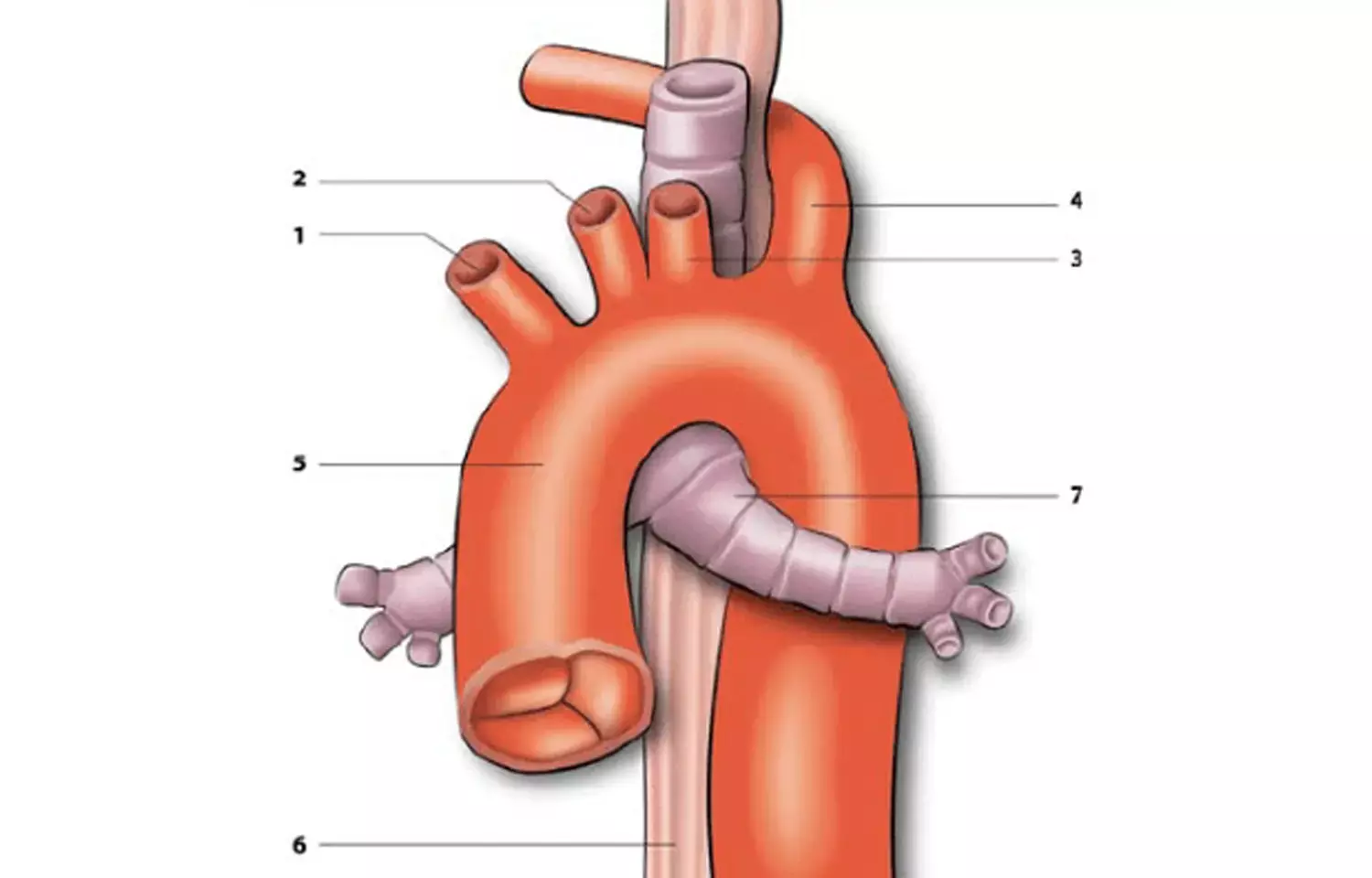- Home
- Medical news & Guidelines
- Anesthesiology
- Cardiology and CTVS
- Critical Care
- Dentistry
- Dermatology
- Diabetes and Endocrinology
- ENT
- Gastroenterology
- Medicine
- Nephrology
- Neurology
- Obstretics-Gynaecology
- Oncology
- Ophthalmology
- Orthopaedics
- Pediatrics-Neonatology
- Psychiatry
- Pulmonology
- Radiology
- Surgery
- Urology
- Laboratory Medicine
- Diet
- Nursing
- Paramedical
- Physiotherapy
- Health news
- Fact Check
- Bone Health Fact Check
- Brain Health Fact Check
- Cancer Related Fact Check
- Child Care Fact Check
- Dental and oral health fact check
- Diabetes and metabolic health fact check
- Diet and Nutrition Fact Check
- Eye and ENT Care Fact Check
- Fitness fact check
- Gut health fact check
- Heart health fact check
- Kidney health fact check
- Medical education fact check
- Men's health fact check
- Respiratory fact check
- Skin and hair care fact check
- Vaccine and Immunization fact check
- Women's health fact check
- AYUSH
- State News
- Andaman and Nicobar Islands
- Andhra Pradesh
- Arunachal Pradesh
- Assam
- Bihar
- Chandigarh
- Chattisgarh
- Dadra and Nagar Haveli
- Daman and Diu
- Delhi
- Goa
- Gujarat
- Haryana
- Himachal Pradesh
- Jammu & Kashmir
- Jharkhand
- Karnataka
- Kerala
- Ladakh
- Lakshadweep
- Madhya Pradesh
- Maharashtra
- Manipur
- Meghalaya
- Mizoram
- Nagaland
- Odisha
- Puducherry
- Punjab
- Rajasthan
- Sikkim
- Tamil Nadu
- Telangana
- Tripura
- Uttar Pradesh
- Uttrakhand
- West Bengal
- Medical Education
- Industry
Odynophagia post-cardiac catheterization, an interesting case report

aberrant right subclavian artery course
Vascular complications from transradial cardiac catheterization are uncommon. Mediastinal hematoma is a rare complication with life-threatening potential. Naidu et al have reported a case in Hindawi journal about a patient who underwent cardiac catheterization and subsequently experienced odynophagia from injury to an aberrant subclavian artery that led to a mediastinal hematoma.
A 59-year-old female with past medical history of coronary artery disease presented with complaints of angina and underwent a transradial cardiac catheterization. Immediately after the procedure, the patient complained of chest pain and odynophagia. EKG and echocardiogram were unremarkable, and a CT scan of the chest demonstrated an ill-defined fluid collection present in the superior mediastinum and an aberrant right subclavian artery. The patient was closely monitored in the Intensive Care Unit. She remained hemodynamically stable throughout the admission. The patient was subsequently discharged home in good condition and did well on outpatient follow-up.
Mediastinal hematoma is a known but rare complication of transradial cardiac catheterization and is related to vessel trauma during instrumentation. In this case, the routine use of 5 French and 6 French catheters led to an ARSA injury and subsequently a mediastinal hematoma. This raises the question of whether a transfemoral approach is better suited for these patients if this aberrancy is identified prior to the procedure.
This patient, however, had a previously unidentified vascular anomaly (ARSA), which likely predisposed her to this complication despite a seemingly uncomplicated transradial catheterization. Prompt recognition of unusual symptoms postprocedure, appropriate hemodynamic and airway management, and possible endovascular repair of the injured vessel are all components of successful management of this potentially life-threatening condition. In addition, a post catheterization angiography of the aberrancy may be helpful to assess for any injury to the vessel prior to sending the patient to recovery if it is recognized during the procedure.
In this case, ARSA was not identified during the catheterization and there was no reported difficulty in engaging the coronaries which would have otherwise alerted the operator. Because of this, operators must have the knowledge of this anatomic aberrancy even if undetected during the procedure. In addition, when the vascular injury is suspected, there are a wide variety of symptoms that should raise concern post-procedure, and odynophagia is one such presentation that should not be ignored.
Source: Moumita Naidu, Robby Singh, Marcel Zughaib, "Odynophagia after Cardiac Catheterization: A Rare Complication in the Presence of Aberrant Subclavian Artery", Case Reports in Cardiology, vol. 2020, Article ID 7431726, 3 pages, 2020. https://doi.org/10.1155/2020/7431726
MBBS, MD , DM Cardiology
Dr Abhimanyu Uppal completed his M. B. B. S and M. D. in internal medicine from the SMS Medical College in Jaipur. He got selected for D. M. Cardiology course in the prestigious G. B. Pant Institute, New Delhi in 2017. After completing his D. M. Degree he continues to work as Post DM senior resident in G. B. pant hospital. He is actively involved in various research activities of the department and has assisted and performed a multitude of cardiac procedures under the guidance of esteemed faculty of this Institute. He can be contacted at editorial@medicaldialogues.in.
Dr Kamal Kant Kohli-MBBS, DTCD- a chest specialist with more than 30 years of practice and a flair for writing clinical articles, Dr Kamal Kant Kohli joined Medical Dialogues as a Chief Editor of Medical News. Besides writing articles, as an editor, he proofreads and verifies all the medical content published on Medical Dialogues including those coming from journals, studies,medical conferences,guidelines etc. Email: drkohli@medicaldialogues.in. Contact no. 011-43720751


